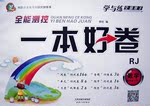题目内容
Letter to Editor of TV WeeklyDear Sir/Madam,
I read Alison Burnham's review of When we were 12,and I do not agree with her.I thought the program wonderful—I found the old news pictures really interesting—they helped to bring to life the stories the people were telling.
The programme reminds me of many things from my own childhood.For example, one day when I was about five,I was going to school on the bus by myself( this was the late 1960s).My mother had given me exactly the right money for a return ticket.I held out my hand with the money in it—one big coin on top of one little coin.The bus conductor took the big top coin only and she gave me a ticket,but it was a pink one for a single journey.I needed a white one for a return journey,but I was too frightened to say anything.When school finished for the day,I couldn't catch the bus home—I had to walk.As a grown-up, whenever I've been in a situation where I need to say something or take some action,this early memory of my bus ride comes back to me, and I'm able to take control of the situation.
I would like to say to the director,Bret Chrysler,carry on making this kind of programme.Too much TV these days is quiz shows and so-called “reality programs”.I appreciate the human story that can make me laugh and cry.
Yours faithfully,
Chris Daniels
1.What is Chris Daniels' purpose of writing this letter?
A.To persuade Bret Chrysler to turn away from quiz shows.
B.To entertain other readers with old news pictures.
C.To express his appreciation of the programme.
D.To have his story told on the programme.
2.Chris Daniels tells the story about the bus ticket to________.
A.describe how painful his early experience was
B.draw a direct response from Alison Burnham
C.show how the programme made him think
D.teach the readers of TV Weekly a lesson
3.According to the passage, Chris Daniels had to walk home because________.
A.he hadn't got a return ticket
B.he had lost his bus ticket
C.he didn't like big crowds
D.he missed the bus home
4.What does Chris Daniels now think about his experience on the bus?
A.He should have told the conductor then.
B.He should have been well treated.
C.He regrets going to school alone.
D.He wishes it hadn't happened.

 全能测控一本好卷系列答案
全能测控一本好卷系列答案I’ve loved my mother’s desk since I was just tall enough to see above the top of it as mother sat doing letters. Standing by her chair, looking at the ink bottle, pens and white paper, I decided that the act of writing must be the most wonderful thing in the world.
Years later, during her final illness, mother kept different things for my sister and brother. “But the desk,” she said again, “is for Elizabeth.”
I never saw her angry, never saw her cry. I knew she loved me; she showed it in action. But as a young girl, I wanted heart-to-heart talks between mother and daughter.
They never happened. And a gulf opened between us. I was “too emotional (易动感情的)”. But she lived “on the surface”.
As years passed and I had my own family. I loved my mother and thanked her for our happy family. I wrote to her in careful words and asked her to let me know in any way she chose that she did forgive me.
I posted the letter and waited for her answer, none came.
My hope turned to disappointment, then little interest and, finally, peace it seemed that nothing happened. I couldn’t be sure that the letter had even got to Mother. I only knew that I had written it, and I could stop trying to make her into someone she was not.
Now the present of her desk told me, as she’d never been able to, that she was pleased that writing was my chosen work. I cleaned the desk carefully and found some papers inside — a photo of my father and a one-page letter, folded (折叠) and refolded many times.
Give me an answer, my letter asks, in any way you choose, Mother, you always chose the act that speaks louder than words.
1.The writer began to love her mother’s desk _______.
|
A.after Mother died |
B.before she became a writer |
|
C.when she was a child |
D.when mother gave it to her |
2.The passage shows that _______.
|
A.Mother was too serious about everything her daughter had done |
|
B.Mother cared much about her daughter in words |
|
C.Mother wrote to her daughter in careful words. |
|
D.Mother was cold on the surface but kind in her heart to her daughter |
3.The world “gulf ” in the passage means _______.
|
A.deep understanding between the old and the young. |
|
B.different ideas between the mother and the daughter. |
|
C.free talks between mother and daughter. |
|
D.part of the sea going far in land. |
4.What did Mother do with her daughter’s letter asking for forgiveness?
|
A.She had never received the letter. |
|
B.For years, she often talked about the letter. |
|
C.She didn’t forgive her daughter at all in all her life. |
|
D.She read the letter again and again till she died. |
5.What’s the best title of the passage?
|
A.My letter to Mother |
B.Mother and Children |
|
C.My Mother’s Desk |
D.Talks between Mother and me. |